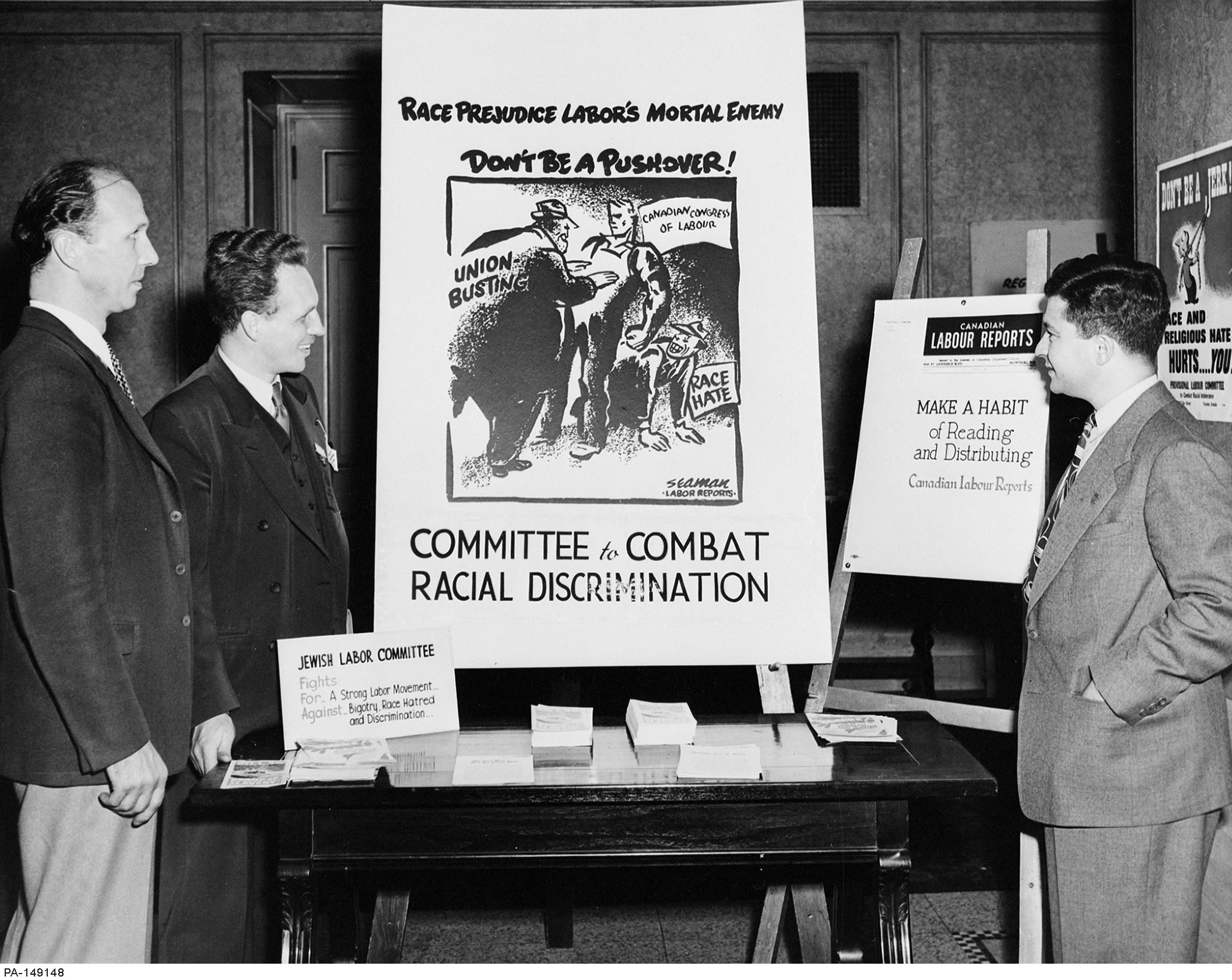New Brunswick
A branch of the Canadian Civil Liberties Association was formed in Fredericton in 1969 under President John Oliver, with about sixty members, and continued to operate until 1975. During its first year, it established a legal aid office and came to the defence of Tom Murphy, a writer for the student newspaper at the University of New Brunswick. Murphy had written a column on the recent barring of a professor from the university, Norman Strax, accusing the courts of perpetrating a mockery of justice and being tools of the corporate elite. The Fredericton CCLA flew in Alan Borovoy from Toronto to challenge the charge against Murphy of scandalizing the courts. Borovoy argued that the Crown must prove actual interference in the administration of justice, but he lost the case and Murphy spent ten days in jail.
An additional group, the Comité des droits de l’homme du nord-est du Nouveau Brunswick, was formed in Bathurst in 1971. Boasting three hundred members, it focused on the social and economic problems of the disadvantaged Bathurst region, specifically high unemployment and the lack of French-language services for Acadians. It lobbied the government to extend unemployment benefits and services, and to improve access to French services. During its first meeting, on 16 May 1971, it established a provisional committee to draft its constitution. On 17 December 1972, the constitution was approved and the association was formally created. It was organized along regions within the province (with representation from each region). Its original impetus was simply a group of friends who were active in other francophone community groups and who were inspired by the ideas of the Universal Declaration of Human Rights and the Canadian Bill of Rights. Jean-Marie Nadeau of the New Brunswick Federation of Labour was its first executive secretary, and its founding president was Théo Gagnon, provincial director for welfare services in the region (many of its founding members eventually became leaders in New Brunswick’s francophone labour movement). Within a year, the group had applied for Secretary of State department funding and established an office in Bathurst, providing seminars to discuss the role of the provincial ombudsman, legal aid, and the Human Rights Commission. It was the most active of the New Brunswick rights associations, offering a referral service and working with the ombudsman and the Human Rights Commission to establish offices in the region. However, it was moribund by 1980, though it had been largely inactive since 1975.
Another association, the Comité pour les droits de l’homme du sud-est du Nouveau Brunswick, emerged in 1972. Little is known about this group, except that it joined the Canadian Federation of Civil Liberties and Human Rights Associations in 1972 and remained active for three years, at which point it dropped off the map. According to the federation, its membership plummeted from a remarkable 1,500 to 10 within a single year, and it had become inactive by 1975. It was probably formed in response to a particular issue that mobilized the local populace and was no longer needed once the problem was resolved.
Finally, the New Brunswick Human Rights and Civil Liberties Association was founded in 1975 (the same year that the Fredericton CCLA became defunct). It was created at the suggestion of Norville Getty, a former leader of the Prince Edward Island Civil Liberties Association, who was travelling to Fredericton in his capacity as president of the Canadian Federation of Civil Liberties and Human Rights Associations. Getty encouraged a small group of young local professionals, mainly professors and civil servants, to form an association and join the federation. The group (mostly anglophones from the southern part of the province) was led by Cynthia Davis, a provincial civil servant. It concentrated on responding to phone calls from people who were unsure of their rights and was discontinued in 1983.
Comité pour les droits de l’homme du nord-est du Nouveau Brunswick (chapters in St. Quentin-Kedgwick, Dalhousie, Caraquet, Bathurst, Tracadie, Shippegan)
Comité pour les droits de l’homme du sud-est du Nouveau Brunswick
New Brunswick Federation for Human Dignity
New Brunswick Human Rights and Civil Liberties Association (a.k.a. New Brunswick Civil Liberties Association)
Further Reading
Clément, Dominique. Canada’s Rights Revolution: Social Movements and Social Change, 1937-82. Vancouver: UBC Press, 2008.
 Site Resources
Site Resources-
- Any use of material or referencing content from HistoryOfRights.ca should be acknowledged by the User and cited as follows:
–
- Clément, Dominique. “page title or document title.” Canada’s Human Rights History. www.HistoryOfRights.ca (date accessed).


 Encyclopaedia
Encyclopaedia 
 © 2024 COPYRIGHT CLÉMENT CONSULTING. ALL RIGHTS RESERVED.
DEPARTMENT OF SOCIOLOGY, UNIVERSITY OF ALBERTA
© 2024 COPYRIGHT CLÉMENT CONSULTING. ALL RIGHTS RESERVED.
DEPARTMENT OF SOCIOLOGY, UNIVERSITY OF ALBERTA